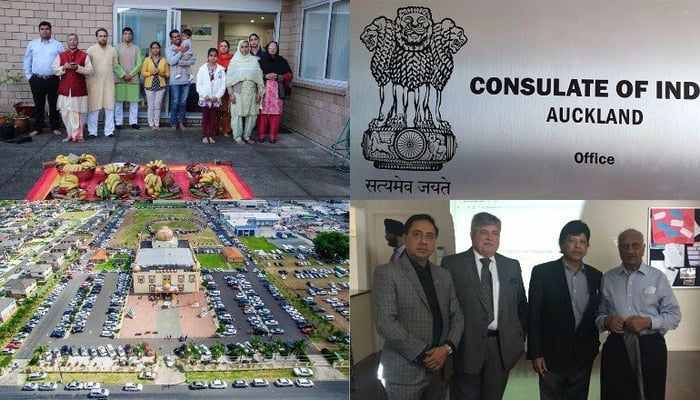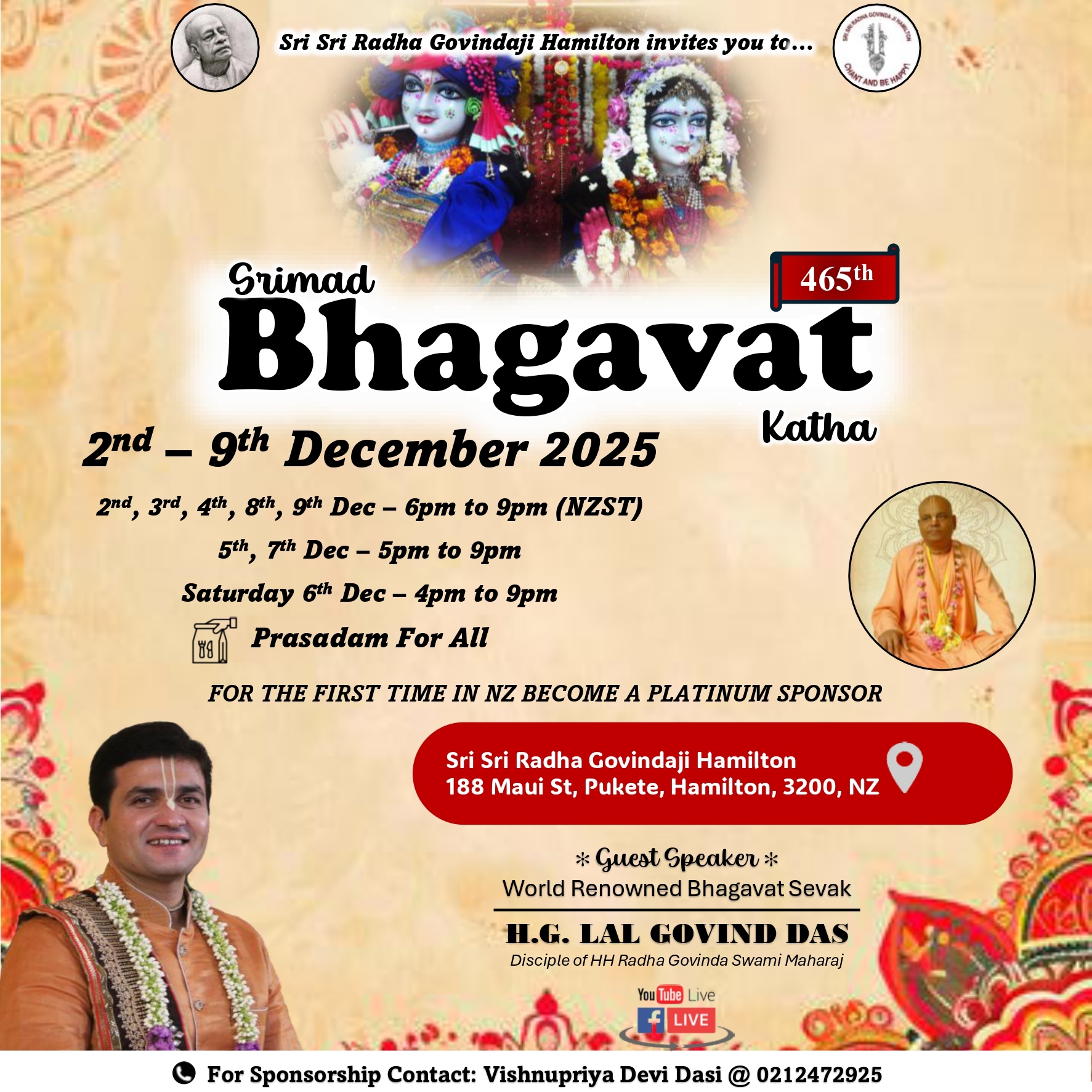Indian diaspora comes of age in NZ

The history of the Indian diaspora in New Zealand goes back to some hundred years when the earliest settlers arrived in the country and shed their blood along with ANZACs among other things to contribute in building modern New Zealand as we know of today.
During this long journey, the self-belief and confidence of the community in its own identity, of being Kiwi-Indian, has fluctuated from being hesitant to being comfortable with its Indian identity, incrementally.
Indeed, this week was another period of incremental growth in the confidence and maturity of the Indian diaspora in New Zealand as evident in several community events.
First, a relatively small but enthusiastic group of families from the state of Bihar-Jharkhand in the Eastern-central part of India celebrated the festival of Chath, which could be safely termed as the star festival of that part of the world displaying rituals, beliefs, colours and culture.
For many, a glimpse of this festival would easily give a peek into the culture of the Bihar and Jharkhand region of India.
For the uninitiated, this Bihar-Jharkhand region was the epicentre of both, the greatest material progress, as evident in empire building activity, and the spiritual-intellectual renaissance, that the ancient India had ever seen.
During the great Mauryan Empire in 325 BCE, the entire Indian subcontinent was united for the first time under a world-class civil administration established by visionary Mauryan rulers, which included Ashok the Great, operated from this region.
Similarly, this region also witnessed an unparalleled level of philosophical, spiritual, and intellectual upheaval unseen anywhere else in the world, resulting in the emergence of two important world religions of Buddhism and Jainism during the same period.
Indeed, this region has a great culture, history and the heritage to share around with the world.
It’s only over the period of past few decades that this region has got a bit distracted in material progress and resulting in a somewhat subdued display of its culture and heritage.
Gradually this is changing, first within India and now beyond India, where the people belonging to this region are feeling confident enough to display the culture that they bring from their ancestral land.
It was reflected in the Bihar-Jharkhand community gathering together in Auckland over the last weekend to celebrate the festival of Chath.
The fact that the newly appointed Honorary Consul of India Bhav Dhillon attended this event as the Chief Guest also reflects the growing connects with the government of India and its diaspora.
Similarly, another smaller community back from India, the Jain community, demonstrated a resolve to bring the first Jain temple in New Zealand, again a sign of growing maturity of the Indian diaspora in New Zealand.
The small group of hundred families gathered together recently in Auckland, to perform Bhoomi-pujan, and public- appeal for a donation to support the cause of Jain temple.
Likewise, another first for the Indian community in New Zealand was the celebration of Rashtriya Ekta Diwas, an opportunity to remember one of the founding fathers of the modern republic of India Sardar Patel and also to extol the importance of a united, undivided and strong India.
The community gathered together on a seemingly lazy Sunday afternoon at the iconic Gandhi centre in Glen Eden to celebrate National Unity Day.
The attendees included several community leaders, MPs, former MPs, elders, professionals, women and most importantly the young ones in the community, who need to be connected with their cultural roots.
The news of the opening of an office of the Indian Consulate in Auckland (Auckland, Waikato and Northland region) also arrived this week, suggesting the desire of the Government of India to provide maximum possible service to the people of Indian origin in their new home (read New Zealand).
The news of Indian government opening Consulate offices around the world is generally treated as a sign of growing maturity of the Indian diaspora and the mutual desire of both home government and the diaspora of having better engagement.
In this regard, this news of the opening of a new office of Consulate office in Auckland is indeed a welcome step in the right direction.
Last but not the least, the Sikh community – one of the oldest segments of the Indian diaspora, and often the youngest and the most sparkly of its segments anywhere around the world – is gearing up to celebrate Gurpurab one of their biggest festivals in the coming weekend.
The festivities in Sikhism revolve around the anniversaries of the ten Sikh Gurus. These Gurus were responsible for shaping the beliefs of the Sikhs and their birthdays, known as Gurpurab, are occasions for celebration and prayer among the Sikhs.
Guru Nanak Gurpurab, also known as Guru Nanak's Prakash Utsav and Guru Nanak Jayanti, celebrates the birth of the first Sikh Guru, Guru Nanak.
This is one of the most sacred festivals in Sikhism.
All major Gurdwaras in Auckland (and beyond), including Takanini and Papatoetoe Gurdwara, are poised to hold prayers, kirtans and spiritual paths to celebrate this occasion.
Surely, this was a week with unmistakable signs of the Indian diaspora coming of age in New Zealand.
The history of the Indian diaspora in New Zealand goes back to some hundred years when the earliest settlers arrived in the country and shed their blood along with ANZACs among other things to contribute in building modern New Zealand as we know of today.
During this long journey, the self-belief...
The history of the Indian diaspora in New Zealand goes back to some hundred years when the earliest settlers arrived in the country and shed their blood along with ANZACs among other things to contribute in building modern New Zealand as we know of today.
During this long journey, the self-belief and confidence of the community in its own identity, of being Kiwi-Indian, has fluctuated from being hesitant to being comfortable with its Indian identity, incrementally.
Indeed, this week was another period of incremental growth in the confidence and maturity of the Indian diaspora in New Zealand as evident in several community events.
First, a relatively small but enthusiastic group of families from the state of Bihar-Jharkhand in the Eastern-central part of India celebrated the festival of Chath, which could be safely termed as the star festival of that part of the world displaying rituals, beliefs, colours and culture.
For many, a glimpse of this festival would easily give a peek into the culture of the Bihar and Jharkhand region of India.
For the uninitiated, this Bihar-Jharkhand region was the epicentre of both, the greatest material progress, as evident in empire building activity, and the spiritual-intellectual renaissance, that the ancient India had ever seen.
During the great Mauryan Empire in 325 BCE, the entire Indian subcontinent was united for the first time under a world-class civil administration established by visionary Mauryan rulers, which included Ashok the Great, operated from this region.
Similarly, this region also witnessed an unparalleled level of philosophical, spiritual, and intellectual upheaval unseen anywhere else in the world, resulting in the emergence of two important world religions of Buddhism and Jainism during the same period.
Indeed, this region has a great culture, history and the heritage to share around with the world.
It’s only over the period of past few decades that this region has got a bit distracted in material progress and resulting in a somewhat subdued display of its culture and heritage.
Gradually this is changing, first within India and now beyond India, where the people belonging to this region are feeling confident enough to display the culture that they bring from their ancestral land.
It was reflected in the Bihar-Jharkhand community gathering together in Auckland over the last weekend to celebrate the festival of Chath.
The fact that the newly appointed Honorary Consul of India Bhav Dhillon attended this event as the Chief Guest also reflects the growing connects with the government of India and its diaspora.
Similarly, another smaller community back from India, the Jain community, demonstrated a resolve to bring the first Jain temple in New Zealand, again a sign of growing maturity of the Indian diaspora in New Zealand.
The small group of hundred families gathered together recently in Auckland, to perform Bhoomi-pujan, and public- appeal for a donation to support the cause of Jain temple.
Likewise, another first for the Indian community in New Zealand was the celebration of Rashtriya Ekta Diwas, an opportunity to remember one of the founding fathers of the modern republic of India Sardar Patel and also to extol the importance of a united, undivided and strong India.
The community gathered together on a seemingly lazy Sunday afternoon at the iconic Gandhi centre in Glen Eden to celebrate National Unity Day.
The attendees included several community leaders, MPs, former MPs, elders, professionals, women and most importantly the young ones in the community, who need to be connected with their cultural roots.
The news of the opening of an office of the Indian Consulate in Auckland (Auckland, Waikato and Northland region) also arrived this week, suggesting the desire of the Government of India to provide maximum possible service to the people of Indian origin in their new home (read New Zealand).
The news of Indian government opening Consulate offices around the world is generally treated as a sign of growing maturity of the Indian diaspora and the mutual desire of both home government and the diaspora of having better engagement.
In this regard, this news of the opening of a new office of Consulate office in Auckland is indeed a welcome step in the right direction.
Last but not the least, the Sikh community – one of the oldest segments of the Indian diaspora, and often the youngest and the most sparkly of its segments anywhere around the world – is gearing up to celebrate Gurpurab one of their biggest festivals in the coming weekend.
The festivities in Sikhism revolve around the anniversaries of the ten Sikh Gurus. These Gurus were responsible for shaping the beliefs of the Sikhs and their birthdays, known as Gurpurab, are occasions for celebration and prayer among the Sikhs.
Guru Nanak Gurpurab, also known as Guru Nanak's Prakash Utsav and Guru Nanak Jayanti, celebrates the birth of the first Sikh Guru, Guru Nanak.
This is one of the most sacred festivals in Sikhism.
All major Gurdwaras in Auckland (and beyond), including Takanini and Papatoetoe Gurdwara, are poised to hold prayers, kirtans and spiritual paths to celebrate this occasion.
Surely, this was a week with unmistakable signs of the Indian diaspora coming of age in New Zealand.









Leave a Comment